W. W. NORTON & COMPANY
Becoming a doctor: from student to specialist: doctor-writers share their experiences / edited by Lee Gutkind.1st ed.
p.; cm.
Includes bibliographical references.
ISBN: 978-0-393-07156-6
1. Physicians writings. I. Gutkind, Lee. [DNLM:
1. Physicianspsychology. 2. Education, Medical.
3. Medicine. 4. Personal Narratives. W 21 B3975 2010]
R134.B43 2010
610.92dc22
W. W. Norton & Company, Inc.
500 Fifth Avenue, New York, N.Y. 10110
www.wwnorton.com
W. W. Norton & Company Ltd.
Castle House, 75/76 Wells Street, London W1T 3QT
INTRODUCTION: WRITING ABOUT DOCTORS
Lee Gutkind
S o far in my career I have written four books about doctorsorgan transplant surgeons, pediatricians, child psychiatrists, and veterinariansand their patients. I have also written books about backwoodsmen, roboticists, baseball umpires, and other subjects, all compelling and interesting and provocative, but always I come back to medicine.
There are some obvious reasons for a writer to find endless fascination with doctors and their lives, especially a writer of creative nonfiction, the genre that makes fact more compelling and understandable through narrative. For one thing, the practice of medicine, especially in a high-acuity medical center (though also in private practice), is exciting and dramatic; there are plenty of stories to capture and relate. Every day brings new narratives and scenes populated by colorful and controversial characters, real people and their loved ones, who are often in real trouble. The raw material couldnt be more exciting, mysterious, and obviouslyfor better or worselife-changing.
Throughout many years of shadowing doctors as they work, Ive seen patients rolled into the operating room on the absolute edge of death, then pacing the hospital corridor a week later, ready and anxious for discharge and home. I have seen patients die in the operating room, and physicians weeping in helpless frustration, although, thankfully, failure is not as frequent as success. Ive seen patients terrified and confused because no one can understand what is wrong with them, why they feel so poorly or so frightened, until the right specialistor therapistsomehow, magically, translates their symptoms into a diagnosis or quells their anxiety with assurance.
Its not magic, of course. Success in medicine stems from a combination of clear thinking, hard work, repeated practice, and old-fashioned gritoften with many mistakes and false starts along the way. I would describe the writing process in the same way. Talent is important, but not necessarily the key component. Effective, powerful writing, like effective doctoring, demands a rare ability to avoid becoming discouraged while experiencing frustrationand the willingness, energy, and fortitude to keep trying. Ernest Hemingway frequently pointed out that he wrote the last chapter of A Farewell to Arms thirty-nine times, until he got it right. The best doctors and the best writers live and breathe this never give up, never give in philosophy.
In addition to possessing grit and determination, doctors, like nonfiction writers, learn to think analytically, unraveling and reconstructing the intimate details of a patients story from beginning to end. The doctor has to understand and solve the narrative quickly, just like a writer, although the writer writes a story to keep a reader engaged, while the doctor wants to find fast relief for his or her patient. (And these days, quick, efficient, effective work by the physician is mandated by managed care.)
Writers and doctors also share an intensity of obsession. Their hours are sporadic and often overwhelming, dictated by need rather than plans and schedules. While private practice may sometimes be less demanding than working in the trenches of a medical center, doctors personal lives are invariably determined by events beyond their control.
Writing about doctors has helped me to realize that they arent necessarily special people; they are, more precisely, ordinary people engaged in an extraordinary profession. Clearly, they are not perfectnot as doctors or as people. Sometimes doctors are distant and convey disinterest; sometimes they are egocentric and radiate superiority; sometimes they are angry or frustrated and treat people rudely; sometimes, alas, the health care system makes it impossible for them to do their jobsand to demonstrate passion and empathy for their patients and colleagues when they most want to. The responsibilities of doctoring often surprise, test, and challenge thembut the best doctors meet and, when necessary, exceed the challenges. And the truth is, we ask more of our doctors, especially these days, than we do of people in almost any other profession.

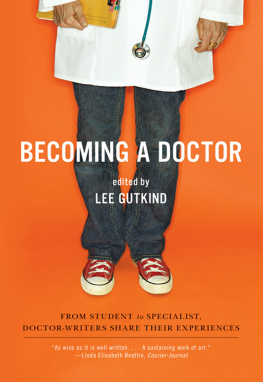
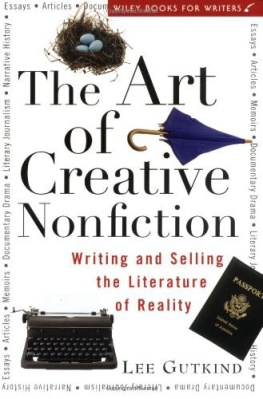

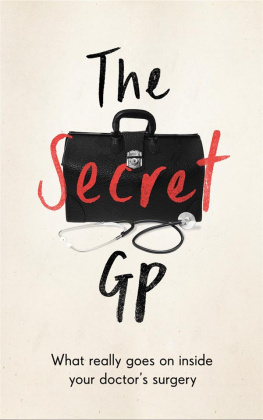
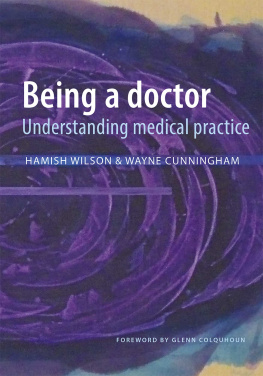
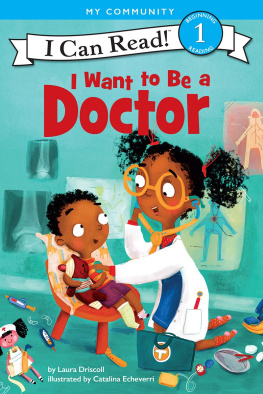
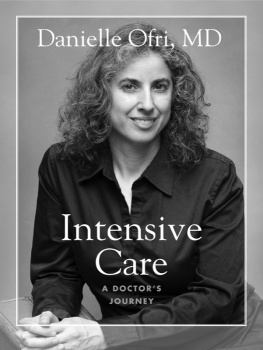

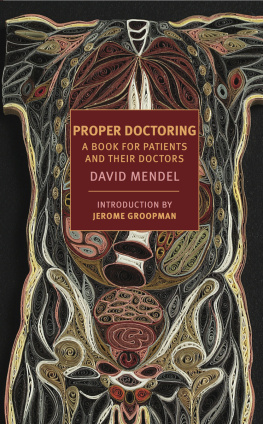

 LONDON
LONDON